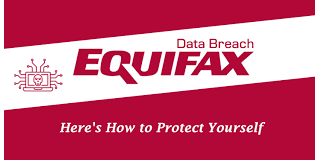Equifax Data Breach

In May 2017, hackers used an undiscovered security flaw in Equifax's software to cause a data breech. This breach went undiscovered for two months, resulting in about 143 million people in the United States, Canada, and the United Kingdom being at risk for having their identities stolen. 209,000 credit card numbers have also been stolen. While this sounds scary, and it is, this is not something impossible to fight. If this breech has affected you, you have options.
Firstly, determine if you're at risk and if you have options or damages available to you.
- Go to https://www.equifaxsecurity2017.com/ and click on 'Potential Impact'. There, enter in your last name and the last six digits of your social security number.
- If the website says you are not at risk, then you need not worry about the breech. Regardless, maintain diligence.
- If the website says you are at risk, you will be given an option to enroll in free credit tracking and identity theft protection for one year, regardless of if you used free or paid services. However, eligibility ends November 21st.
- Regardless of if you enroll or not, you are allowed to take part in a class-action lawsuit against Equifax. If you qualify, you will likely already be entered into the suit. Once the case settles, you will be notified by mail if you qualify for part of the settlement.
Next, if you are affected, take immediate action.
- Check your credit reports and bank statements for suspicious activity.
- If you so desire, place a credit freeze or a fraud alert on your credit files.
- If it seems that your card number has been stolen, cancel that card and request a new one from your bank.
- If your bank account has been compromised, close it and open a new one.
- If your driver's license number has been stolen, report that you have a lost or stolen driver's license to your local motor vehicles branch.
- File your taxes as soon as you have the required documentation, to avoid tax identity fraud.
- If the IRS writes to you, respond as quickly as you are able to.
- If someone calls you claiming that you will be arrested unless you pay tax or debts, you can safely ignore them, even if they claim they are from the IRS or if they demonstrate that they know your social security number. The IRS will never call you.
Finally, ensure the security of your information in the years to come. The information that the hackers stole will never change.
- Watch your financial and personal information for unusual activity. Take action as soon as you notice anything that you can't explain.
- Shred any documents you no longer need if they have personal information.
- Ensure that any sensitive information is only transmitted over a secure connection (e.g. only on pages where the URL begins with 'https').
- Practice email safety: do not open unexpected attachments or follow links without ensuring they lead where they claim to. Likewise, do not automatically trust anything said in an email from someone you do not know.
For additional Cyber Hygiene tips, contact RNT Professional Services, LLC
info@rntpros.com
405.561.4326
Read Also
- Be Alert When You Use An ATM
- Back to school Cyber Hygiene Tips
- Using Public Wi-Fi
- Phishing
- RNT ensures its clients practice good cyber hygiene
- Local Business Owner Teresa Rule Named to NSBA Leadership Council
- Convenience with a Cost: The Internet of Things
- How Will Russian Hacking Allegations Affect Small Businesses?
- FISMA







